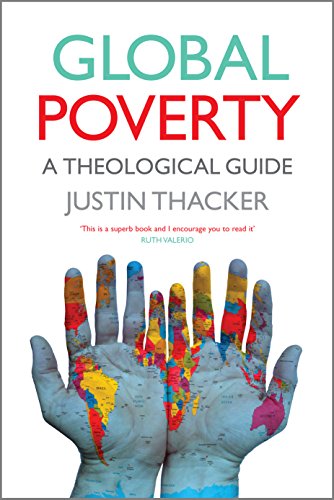Global Poverty: A Theological Guide
Written by Justin Thacker Reviewed By Dan YarnellIt is a truism to say that the world is more globally connected and aware than at any time in its history. Our daily decisions and actions have a significant and often more direct effect on other people, cultures, and the planet in ways we previously have not been aware of. This interconnectedness requires new depths of understanding about how our approach to discipleship can enable and foster others’ flourishing yet not demean and limit them. We need well informed and biblically robust resources that inform our thinking and actions as we love God, our neighbor, our enemy, and those within the Christian community.
Of course, numerous books, studies, conferences, and policies seek to explore, understand, address, and engage with key issues related to global poverty. Thacker’s book brings a fresh and important voice. It makes a significant contribution into the work of public theology and Christian social ethics. His contribution is both unique and thorough as he seeks to develop a systematic theology of global poverty. In addition, he discusses ways that aid is both a help and a challenge. His critique causes the reader to reflect more deeply about whether giving aid is a sustainable approach in a world of 1.2 billion people who live in extreme poverty.
Thacker previously served as a medical doctor in Kenya, where he lived in the context of widespread poverty. He has also written on these issues, e.g., Micah’s Challenge: The Church’s Responsibility to the Global Poor (Bletchley, UK; Paternoster; 2008). As the current Academic Director of Cliff College in Derbyshire, he continues to foster his thinking and influence as lecturer in practical and public theology. This background helps Thacker bring academic and practical theology together in a helpful and symbiotic way.
Thacker uses five key theological categories to frame his theological anthropology. These include creation, fall, Israel, redemption, and consummation. Within each of these, few stones are left unturned as he considers the continuing challenges of inequalities and the social, historical, political and theological underpinnings that form and shape our understandings and engagement. Certainly, other loci are missing from Thacker’s systematic theological treatment, e.g., the incarnation. He is aware of these concerns yet acknowledges that this work, like all books, has inherent limitations. Nevertheless, his presentation is coherent and relatively comprehensive.
The strength and weakness of a work like this lie is its range and breath. Thacker is well read and provides substantive and wide-ranging insights that challenge various theological and political stances. Engaging his argument will challenge and inspire readers. Thacker seeks to encourage and provoke. He brings a prophetic, nuanced understanding to the complexities of the issues and the importance to take them seriously. He draws clear inspiration from the late missiologist and church statesman Lesslie Newbigin, whose thought forms the book’s missional underpinning.
Thacker’s insights in this timely work reflect one of the marks for 21st century discipleship, whereby we intentionally participate in the ongoing challenges that global poverty presents. His book goes a long way to aid our thinking and stimulating changes that enable us to express kingdom values in a fresh and timely way.
Dan Yarnell
Dan Yarnell
ForMission College
Birmingham, England, UK
Other Articles in this Issue
The essay first seeks to unpack the anthropological and soteriology teaching of Martin Luther’s diatribe “against scholastic theology,” that is, against Semi-Pelagian or Pelagian moral anthropology in his 97 Theses of September 1517...
The claim that some incident or saying in the Gospels is multiply and independently attested is sometimes made in the wrong way by biblical scholars...
Biblical Words and Theological Meanings: Sanctification as Consecration for Transformation
by Ben C. DunsonProtestants have traditionally understood sanctification as God’s work of gradual spiritual transformation over the entire life of every believer...
The Boundaries of the Gift of Tongues: With Implications for Cessationism and Continuationism
by Vern S. PoythressSpeaking in tongues potentially includes three subcategories: (1) known language; (2) unknown language; and (3) language-like utterance—an utterance consists of language-like sounds but does not belong to any actual human language...







